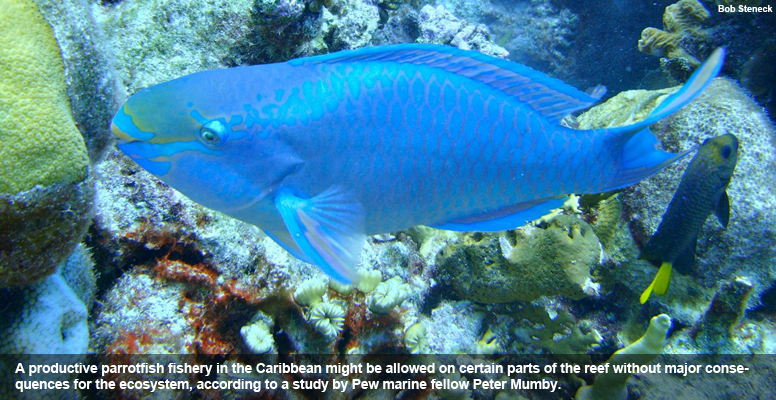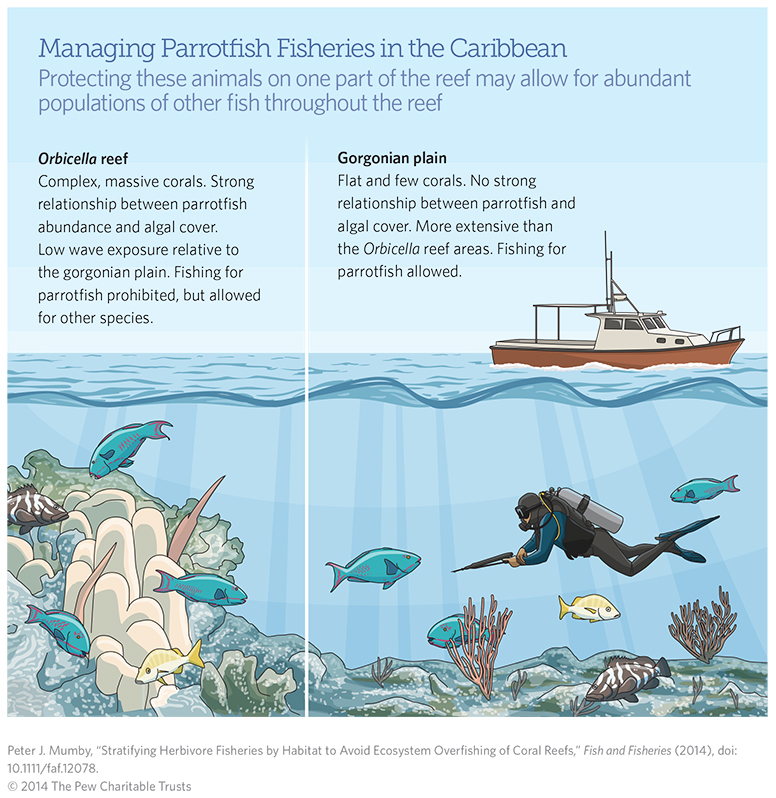Study Offers New Ecosystem Approach to Parrotfish Management
A March 2014 report in the journal Fish and Fisheries describes a new approach to ecosystem-based fisheries management of coral reefs in the Caribbean Sea centered on one very charismatic reef dweller—the parrotfish.

The report, written by Peter J. Mumby, Ph.D., a Pew marine fellow and professor at the University of Queensland in Australia, focuses on parrotfish—the target of an important Caribbean fishery. In addition to their value as a food source, parrotfish also contribute to healthy coral ecosystems by consuming algae or seaweed on certain parts of reefs. Mumby recommends that, if the fishery must exist, managers should consider regulations that prevent fishing for parrotfish from the part of the reef where they feed on algae. Fishing in these areas for other species, however, could still occur.

To learn more about this study, read the fact sheet.
Parrotfish Help Keep Coral Reefs Colorful | One-Minute Dive With Pew
When it comes to mealtime, coral reefs are the perfect place for a hungry parrotfish. These colorful fish spend 90 percent of their time eating seaweed from reefs in the Caribbean and around the world. Their consumption of algae, which helps limit the organism's harmful impact, is vital to the survival of these corals and the health of the reef.
Mumby studies corals in the Caribbean Sea and Pacific Ocean. He's discovered that “no-take” marine reserves, where fishing for parrotfish, in this case, would be prohibited, may make coral reefs six times more resilient to bleaching and other disturbances.
The Role of Parrotfish
-
Parrotfish graze on algae, a competitor of coral, preventing the organisms from overtaking the reef.
-
Healthy coral with low algal cover supports a high-density and diversity of fish, and therefore, much higher fisheries production.
-
Read the fact sheet (PDF)






